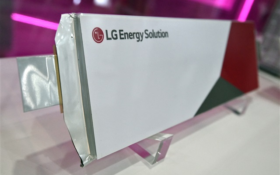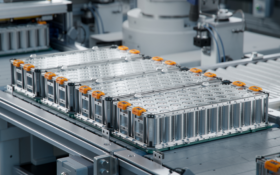Batteries ability to transform the UK’s grid-scale energy landscape will become clearer as prices drop, claim electricity utility UK Power Networks.
The comments by Suleman Alli, the company’s director of Safety, Strategy and Support Services, came after a two-year trial testing lithium-ion technology in Leighton Buzzard, Bedfordshire.
The 6MW/10MWh system cost £18.2million ($22.9million), around double the £9million ($11.3million) Alli estimated would have been a financially viable total.
However, Alli used the recent Enhanced Frequency Response (EFR) tender from National Grid as an example of how batteries ‘just make storage a viable investment’.
Eight projects totalling £65.95m ($83.14million)—with an average price of £9.44($11.4)/MW of EFR/h)— were announced in September.
Alli said: “It appears that current battery prices for building short duration storage units (for example that run for 1hour at the most) matched with certainty of revenues estimated for EFR currently just make storage a viable investment.”
The Smarter Network Storage (SNS) Leighton Buzzard facility was used for frequency control and peak shifting.
Alli said the facility had delivered insight for the whole industry at a crucial moment in its evolution, and he believed grid-scale storage had a huge role to play in addressing the industry’s challenges.
Alli told BBB: “Due to their high speed of response, batteries are a good companion to traditional generation as they can cover the time between a response being required and the traditional generation equipment ‘spinning up’ and being able to provide that response.”
He added: “For the business case to be viable several factors need to align, from battery costs, to revenue streams. Each battery project is site and size specific.
“The duration of the battery has impact on the cost of the asset. For example, SNS was designed to provide a 1.5hour response to account for peak shaving in the town of Leighton Buzzard.
“We analysed the specific case of SNS, and in that very specific case, of a 6MW/10MWh storage facility, we estimate that the project would have to cost under £9m to be able to be financially viable.
“This is probably 2/3 of what the project cost us originally, four years ago. This is assuming that the unit helps us defer reinforcement and that the additional revenues from frequency response are available.
“Keep in mind that battery costs are not the only cost, rather these are big infrastructure projects that also have a dependency on purchasing transformers, switch gear, etcetera.”
The system was designed and run by UK Power Networks using batteries made by Samsung SDI and a battery management system supplied by Younicos.












